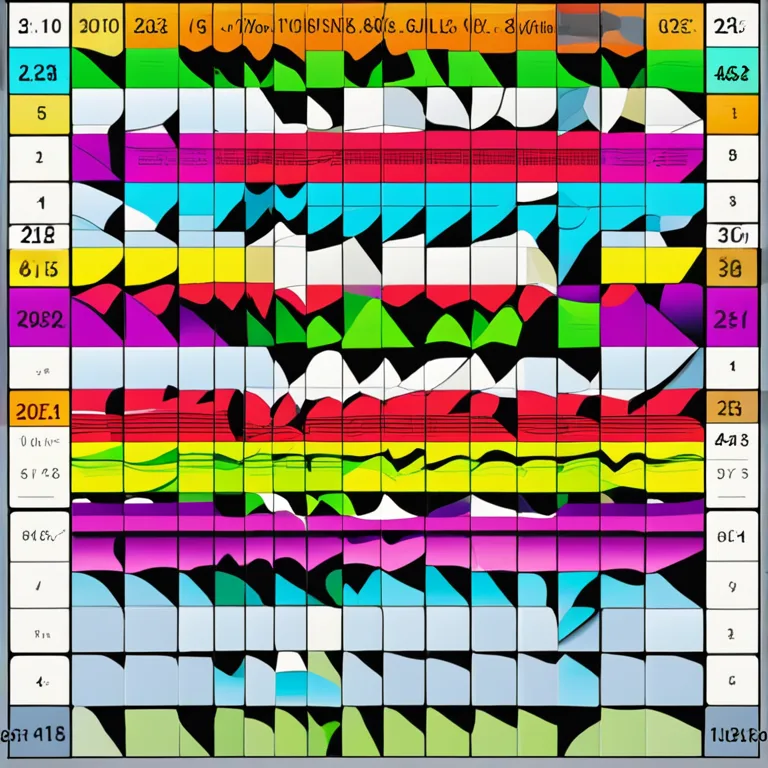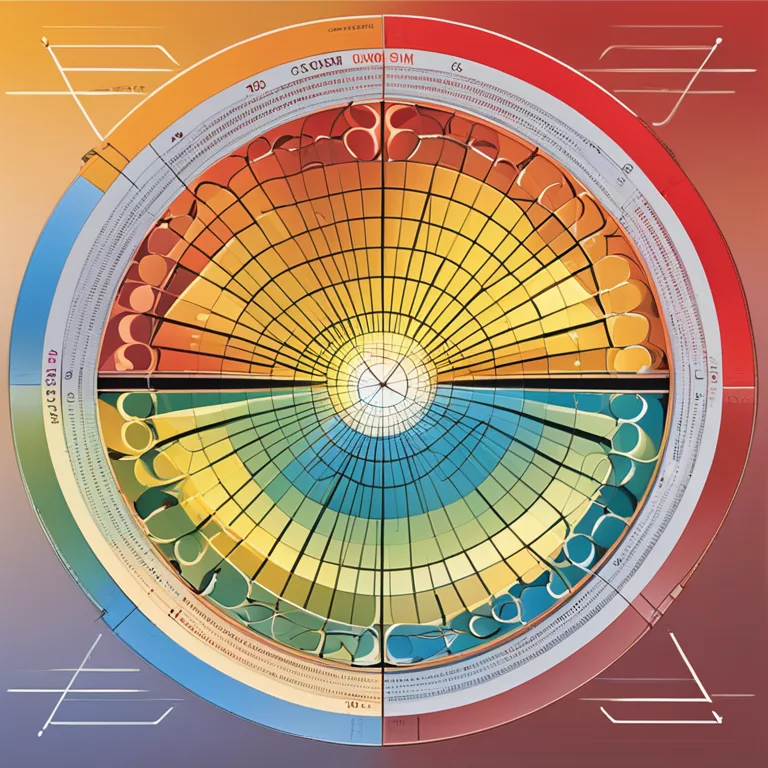
Biorhythms and Fortune: Maximizing Your Lucky Days
Discover how understanding your personal biorhythms can help you increase your chances of experiencing lucky moments and serendipity in day-to-day life.
article by Adrian Wallace
Introduction to Biorhythms and Luck
Luck often seems like a random spark, illuminating our lives unexpectedly. But what if there was a way to forecast when these flashes of fortune might occur? This is where the concept of biorhythms comes into play. Biorhythms are said to be intrinsic cycles that regulate memory, ambition, coordination, endurance, temperament, and much more. Although the scientific community remains divided over their validity, enthusiasts claim that tracking these physiological rhythms can be pivotal in maximizing days of potential luck.

The Three Biorhythm Cycles
Biorhythms are composed of three specific cycles: Physical, Emotional, and Intellectual. Each one oscillates in a sine wave pattern from a high point of optimal function to a low point of reduced function. The Physical cycle, with a span of 23 days, influences strength, health, and raw physical vitality. The Emotional cycle, running a 28-day course, reflects mood, creativity, and perception, while the Intellectual cycle, completing its loop in 33 days, impacts analytical thinking, logic, and planning.

Calculating Your Biorhythms
To calculate your personal biorhythm for luck, you'll start with your birth date as a reference point. From there, use biorhythm calculators which have been updated for 2024 standards, with adjustments for leap years and the inclusion of additional aspects like intuition cycles. These tools often present an integrated chart that pinpoints your high, low, and critical days for each cycle, giving you the foresight to plan accordingly for potentially lucky or challenging times.

Aligning Activities with Positive Phases
Understanding your biorhythm can be particularly beneficial in scheduling activities that require a bit of extra luck. If you're planning to participate in a competition, negotiate deals, or engage in any activity where the outcome hinges on chance, aim for days when your Physical and Emotional cycles are in their high phases. It is during these periods that you are believed to exude positive energy and have the greatest alignment with serendipity.

Critical Days and Being Cautious
Each biorhythm cycle also has its critical days—those transition points between high and low phases. On these days, one's abilities in the associated area could be erratic or unpredictable. It's suggested to approach these days with caution, especially when seeking out luck. As the theory goes, being aware of these swing states can help prevent missteps on days when your fortune may not be as fortuitous.
Applying Biorhythms to Real-world Decisions
The application of biorhythms in decision-making can extend to various areas of life, from financial investments to personal relationships. Whether it's choosing the best day for a job interview or a first date, biorhythm enthusiasts advocate the use of these personal timelines to capitalize on high-probability moments. While there's no guarantee of success, aligning your actions with your biorhythmic ebb and flow can be seen as playing the odds in your favor.
The Skepticism and What Lies Ahead
Despite their fascinating promise, biorhythms are met with skepticism. Many psychologists and scientists demand empirical evidence that correlates biorhythm cycles with increased luck or success in day-to-day activities. Yet, even as the debate continues, biorhythms retain a niche following. With advancements in personalized data and wearable technology, it's possible that future tools could offer more individualized and nuanced insights into how our biological rhythms might interplay with the whims of fortune.
Published: 12/28/2023
Modified: 12/28/2023
More predictions
Come back here soon to learn more about yourself and your future


The Practical Uses of Biorhythms in Our Lives
Discover how biorhythms can be applied to improve well-being and achieve a better understanding of personal cycles in health, decision-making, and relationships.


The Synergy of Cycles: Biorhythm Compatibility
Discover the secrets of biorhythm compatibility and how it might influence personal connections in our comprehensive guide.


The Origins of Biorhythm Theory Explored
Discover the historical and scientific roots of biorhythm theory, the concept that seeks to predict personal cycles of health, emotion, and intellect.